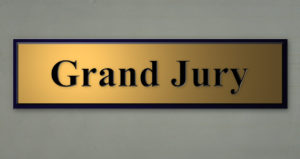We are regularly asked about the difference between grand juries and preliminary hearings, and which one is advisable over the other. The truth is that grand juries can be better for prosecutor because the grand jury sees and hears only what the prosecutors tells them and presents to them. Keep reading to learn more and then contact Law Office of Michael L. Fell at (949) 585-9055 if you are in need of a free legal consultation from an experienced criminal defense attorney.
The Difference Between Grand Juries and Preliminary Hearings
Preliminary hearings are held in court and the accused has their defense present. Said defense is able to show the side of the accused to give the judge a better idea of the entire scope of the case. On the other hand, a grand jury only offers the context presented by the prosecutor.
When a prosecutor goes before a grand jury, they are making the case that the accused should be indicted for certain crimes. Though these prosecutors are legally required to present exculpatory evidence as well (which is evidence that suggests that the defendant may not be guilty), the only thing to enforce that rule is the conscience of the prosecutor themselves.
Grand Juries Almost Always Return an Indictment
Due to the fact that there is only one side heard in a grand jury case, if a prosecutor wants an indictment from a grand jury they will almost always get one. One study done by the U.S. Department of Justice re: plea bargaining found that grand juries are essentially “rubberstamps” that offer prosecutors the ability to bring charges against just about anyone they want to.
Prosecutors Like the Secret Proceedings
There is another reason that a prosecutor, when given an option, is more likely to choose a grand jury: It’s secret. In a preliminary hearing, if a prosecutor files information they must convince the judge in a public hearing that there is enough evidence for a conviction. This is not the same level of burden required at a grand jury proceeding.
Instead, the prosecutor must only prove that they have probable cause to believe that a crime occurred and that the accused is one that committed it. Compare this to a preliminary hearing, in which the defendant’s attorney can cross-examine any witnesses for the prosecution. Not only does this allow them to make their case that charges should never be filed, but it gives that defense attorney a chance for a preview of the case the state is bringing.
If you are being charged with a crime, it is essential to get an attorney on your side. You can reach Law Office of Michael L. Fell now at (949) 585-9055 for a free legal consultation.


